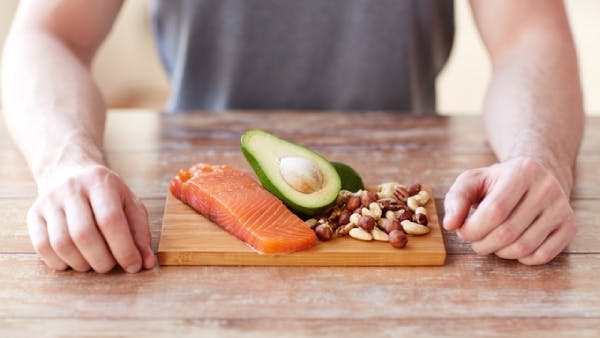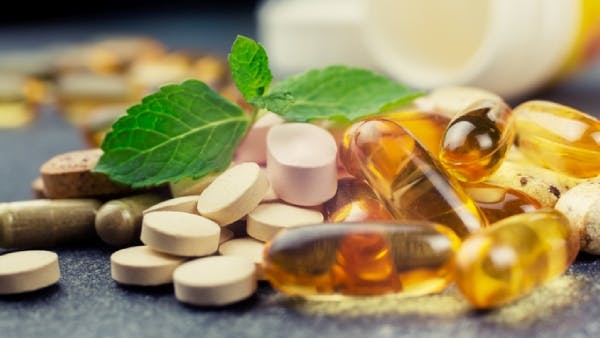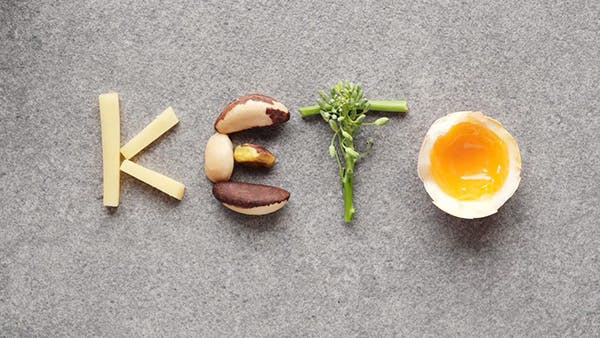Postnatal Vitamins for Breastfeeding Mothers
Mothers need certain nutrients when they’re pregnant to support the growth and development of their babies, as well as to nourish their own changing bodies. Postpartum mothers require the same nutrients, but the level they need can change when breastfeeding. Learn how the needs of breastfeeding mothers differ from pregnant women and ways to adjust your diet to make sure you’re getting the most essential vitamins and minerals.

Postpartum Nutritional Needs
If you're breastfeeding, your baby is relying on you to help them meet their nutrient needs, which is why it’s important to choose what you eat and drink mindfully during this time. However, you may have some questions about what foods and drinks are appropriate for you.
To begin, you will likely need to eat a little more than you usually do to give you enough energy and nutrition to produce breast milk. For most mothers, this is equivalent to an additional 300-400 calories a day.[1] Ideally, these extra calories should come from sources rich in nutrients that provide you with energy, rather than junk food. You may also need to up your water intake, since breast milk is 88% water.[2] While there are not specific recommendations for the amount of water a breastfeeding mother should drink, you should drink when you feel thirsty and watch for any signs of inadequate fluid intake, like concentrated urine or constipation.[2]
Since breastfeeding mothers are essentially eating for two, they should pay close attention to their diets and make sure they’re eating at least 65g of protein a day as well as getting enough Omega-3 fatty acids, calcium, iron, vitamin D and choline.[2]
Foods High in Iron
Iron is your first line of defense against fatigue while breastfeeding.[2] Your body is using a lot of energy to turn what you’ve eaten into breastmilk for your little one, and iron is responsible for transporting oxygen throughout your body. It also supports your immune and nervous systems. While you’re breastfeeding, you should consume at least 9mg of iron each day.[2]
Foods that are high in iron include:<[2][3]
- Lean meats and seafood
- Nuts and seeds
- Dried beans and fruits
- Fortified grains
To help your body absorb iron, eat foods rich in iron along with foods that are high in vitamin C, like citrus.[1]
Foods High in Choline
Choline is an important nutrient that’s present naturally in certain foods and available in supplements. Our bodies produce small amounts of choline in our liver, but not enough to meet our daily needs.[4] Pregnant women are at a higher risk for a choline deficiency than the general public, as choline isn't available in most prenatal supplements. If you’re currently breastfeeding, you require 450 to 550 mg of choline daily. Foods that are high in choline include:[4]
- Beef
- Chicken
- Beans
- Peanuts
- Egg yolks
- Fish
- Shiitake mushrooms
- Potatoes
- Milk
- Yogurt
- Cruciferous vegetables like broccoli, cauliflower, Brussels sprouts and cabbage
- Sunflower seeds
Foods High in Calcium
Breastfeeding women require the same amount of calcium as women who are not lactating, about 1000-1300mg a day.[2][3]This vital mineral is used to build and maintain strong bones and teeth for you and your little one. Getting enough calcium while you’re breastfeeding means that you’re passing the right amount on to your baby, so they can continue to grow and be healthy. It’s suggested that mothers get their calcium from dietary sources whenever possible.[2]
Foods that are high in calcium include:[2][3]
- Dairy products like milk, yogurt and cheese
- Produce like collard greens and broccoli
- Shrimp
- Tofu
- Fortified orange juice
- Certain breakfast cereals
Not getting enough calcium during breastfeeding can lead to a loss of bone density for a mother, so it’s certainly important to get enough of this mineral.[2]
Vitamin D for Breastfeeding
Breastfeeding mothers should make sure that they’re eating a nutritious diet and getting enough vitamins for themselves and their babies. Vitamin D is another necessary vitamin that helps maintain bone health. Breastfeeding women require the same amount of vitamin D as those who are not lactating, about 600 IU (15 mcg) a day. Many cereals, juices and dairy products are often fortified with vitamin D. It is recommended by the American Academy of Pediatrics and the Dietary Guidelines for Americans that breastfed and partially breastfed infants be supplemented with Vitamin D starting in the first few days of life. Consult your baby's pediatrician for more guidance.
If you’ve chosen to breastfeed your child you should make a point to take care of yourself with the same consideration that you have for your baby. Centrum multivitamins, along with a healthy/proper diet, can help a woman meet her nutritional needs before, during and after pregnancy.










